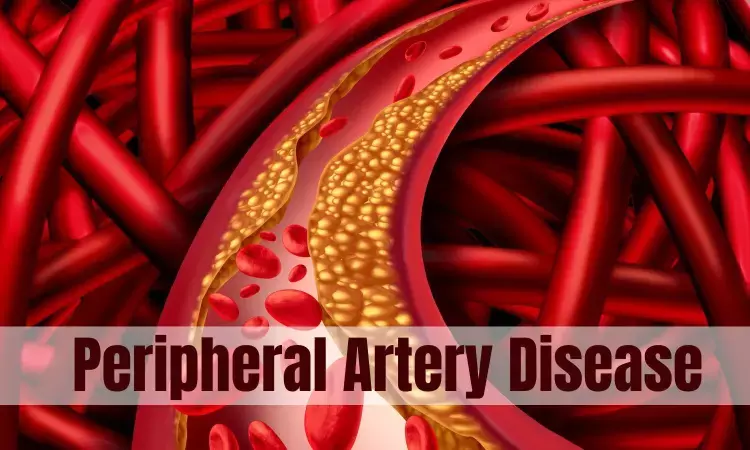- Home
- Medical news & Guidelines
- Anesthesiology
- Cardiology and CTVS
- Critical Care
- Dentistry
- Dermatology
- Diabetes and Endocrinology
- ENT
- Gastroenterology
- Medicine
- Nephrology
- Neurology
- Obstretics-Gynaecology
- Oncology
- Ophthalmology
- Orthopaedics
- Pediatrics-Neonatology
- Psychiatry
- Pulmonology
- Radiology
- Surgery
- Urology
- Laboratory Medicine
- Diet
- Nursing
- Paramedical
- Physiotherapy
- Health news
- Fact Check
- Bone Health Fact Check
- Brain Health Fact Check
- Cancer Related Fact Check
- Child Care Fact Check
- Dental and oral health fact check
- Diabetes and metabolic health fact check
- Diet and Nutrition Fact Check
- Eye and ENT Care Fact Check
- Fitness fact check
- Gut health fact check
- Heart health fact check
- Kidney health fact check
- Medical education fact check
- Men's health fact check
- Respiratory fact check
- Skin and hair care fact check
- Vaccine and Immunization fact check
- Women's health fact check
- AYUSH
- State News
- Andaman and Nicobar Islands
- Andhra Pradesh
- Arunachal Pradesh
- Assam
- Bihar
- Chandigarh
- Chattisgarh
- Dadra and Nagar Haveli
- Daman and Diu
- Delhi
- Goa
- Gujarat
- Haryana
- Himachal Pradesh
- Jammu & Kashmir
- Jharkhand
- Karnataka
- Kerala
- Ladakh
- Lakshadweep
- Madhya Pradesh
- Maharashtra
- Manipur
- Meghalaya
- Mizoram
- Nagaland
- Odisha
- Puducherry
- Punjab
- Rajasthan
- Sikkim
- Tamil Nadu
- Telangana
- Tripura
- Uttar Pradesh
- Uttrakhand
- West Bengal
- Medical Education
- Industry
Healthy lifestyle tied to reduced risk of PAD in genetically susceptible type 2 diabetes patients: Study

China: A recent study has shown a lower risk of peripheral artery disease (PAD) among individuals with type 2 diabetes (T2D) with a favourable lifestyle, independent of genetic predisposition to PAD. The findings were published online in Diabetes Care on January 5, 2024.
The research from the UK Biobank, spanning over 13.5 years, revealed that adhering to a favourable lifestyle characterized by regular exercise, non-smoking, moderate alcohol intake, a high-quality diet, sufficient sleep, and optimal waist-to-hip ratio led to a remarkable reduction in the risk of peripheral artery disease in T2D patients. A favourable lifestyle also partly mitigated the genetic risk of PAD.
The study was conducted by Gang Liu, Huazhong University of Science and Technology, Wuhan, China, and colleagues to evaluate the association between modifiable lifestyle factors and peripheral artery disease among individuals with type 2 diabetes.
The researchers included 14,543 individuals with type 2 diabetes from the UK Biobank. A weighted healthy lifestyle score was defined using adequate sleep duration, optimal waist-to-hip ratio, moderate alcohol consumption, regular physical activity, high-quality diet and nonsmoking. They were categorized into unfavourable, intermediate, and favourable lifestyles.
A genetic risk score (GRS) was created using 19 single nucleotide polymorphisms previously found to be associated with PAD. The association between lifestyle score and PAD was modelled, overall and stratified by PAD genetic susceptibility.
Based on the study, the researchers reported the following findings:
- 628 incident cases of PAD were documented after a median of 13.5 years of follow-up.
- A linear inverse association between the weighted lifestyle score and PAD was observed, with a hazard ratio (HR) of 0.27 for favourable compared with unfavourable lifestyle.
- An estimated 58.3% of PAD in this population could be potentially avoidable if all participants attained a favourable lifestyle. Moreover, the PAD GRS was associated with increased PAD risk (HR per SD increment: 1.13).
- A favourable lifestyle partially mitigated the excess risk of PAD associated with higher GRS, albeit as a nonsignificant interaction.
- Several biomarkers in the lipid metabolism, hepatic/renal function, and systemic inflammation pathways collectively explained 13.3% of the association between weighted lifestyle score and PAD.
"A favourable lifestyle was associated with lower PAD risk among patients with T2D, independent of genetic predisposition to PAD," the researchers concluded.
Reference:
Zhu K, Qian F, Lu Q, Li R, Qiu Z, Li L, Li R, Yu H, Deng Y, Yang K, Pan A, Liu G. Modifiable Lifestyle Factors, Genetic Risk, and Incident Peripheral Artery Disease Among Individuals With Type 2 Diabetes: A Prospective Study. Diabetes Care. 2024 Jan 5:dc231503. doi: 10.2337/dc23-1503. Epub ahead of print. PMID: 38181303.
Dr Kamal Kant Kohli-MBBS, DTCD- a chest specialist with more than 30 years of practice and a flair for writing clinical articles, Dr Kamal Kant Kohli joined Medical Dialogues as a Chief Editor of Medical News. Besides writing articles, as an editor, he proofreads and verifies all the medical content published on Medical Dialogues including those coming from journals, studies,medical conferences,guidelines etc. Email: drkohli@medicaldialogues.in. Contact no. 011-43720751


